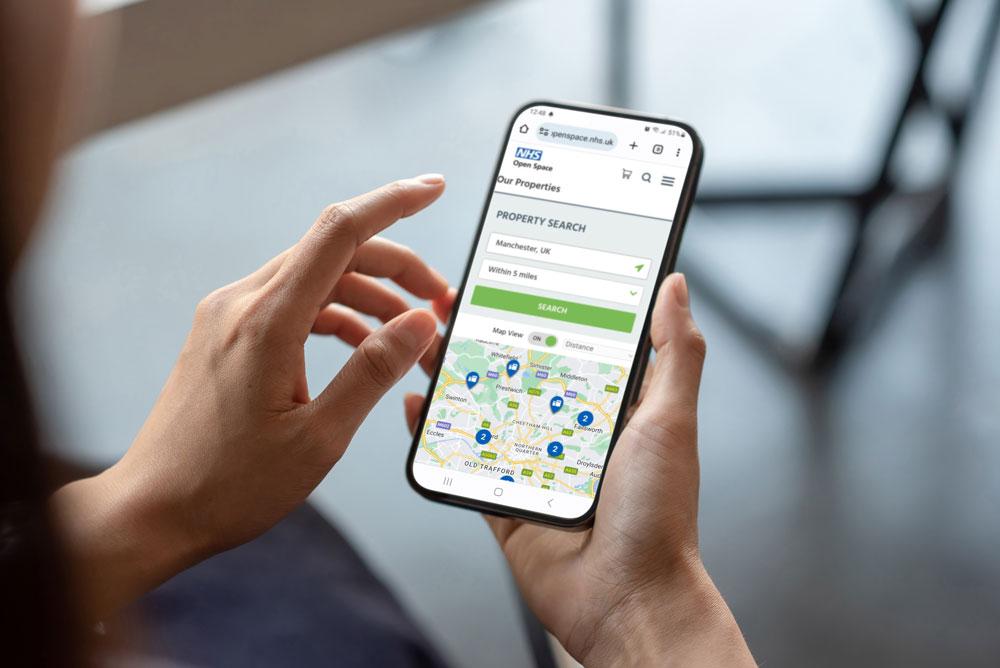How have NHS trust parking managers adapted to the changes in parking demand, implemented the parking concessions one year on from their introduction, and reintroduced staff paying for parking? Sarah Greenslade, Public Affairs and Communications Officer at the British Parking Association, answers.
You might think that parking at hospital trusts has been one of those few areas within the NHS that’s been relatively unaffected by the pandemic. Far from it - the BPA NHS trust parking managers met virtually every month during COVID 19 to support each other, and continue to do so.
Keith Fowler, Associate Director of Facilities & Sustainability at North Lincolnshire and Goole Hospital Trust and chair of the BPA Healthcare Group, reflects: “Everyone [among trust parking managers] brought fresh ideas and new ways of thinking to the meetings, and are still doing so as we now learn to live with COVID”.
At the start of the pandemic trusts were on their way to implementing four new parking concessions in England (see box on the following page). This was after much discussion with government, trusts and car park operators over what the full definitions would be.
Adoption of the new concessions
Ninety seven percent of trusts in England have now implemented these according to NHS England. Trusts’ interpretation of the staff working night shifts concession has perhaps differed the most. Some have taken the view that if staff work some night shifts in a month they receive a proportionate discount and a few have taken it to mean those working permanent night shifts. Many trusts saw these concessions as simply formalising their existing parking concessions, especially the case with frequent outpatient attenders and parents of sick children staying overnight.
Pressure on spaces
At the peak of the pandemic the number of parking spaces shrunk and expanded over time. Whilst visitor numbers dropped to zero, staff parking increased due to free parking being introduced in England and some lost space due to Nightingale hospitals and mortuaries being fitted into car parks. Many trusts struggled to manage the increased demand for staff parking. Some trusts were due to open new multi storey car parks for staff but wondered how could it to be paid for whilst staff parking was free. Thanks to Government compensation for trusts in England this loss was made up for.
Review of parking
It has been a good opportunity for trusts in England to review and reset their systems. One of these is South Warwickshire NHS Foundation Trust. Sean Mitchell, the trust’s security and parking services manager reflects that “it started out being straight forward when free staff parking was introduced and then in April 2021 it got a bit more complicated when the four new parking concessions were brought in.” These needed to be swiftly implemented in a way that avoided placing extra burdens on over-stretched reception and ward staff.
Mitchell proudly highlights two significant changes in the way the trust manages its parking promoted by the new concessions. Both involved adding to their existing Automatic Number Plate Recognition (ANPR) system.
“With just 2-3 weeks’ notice our parking operator added a disabled Blue Badge scanner to the ANPR entry system and being able to tell if it is valid or expired. This saves disabled blue badge holders the hassle of having to go to our security office and get it manually checked before giving the parking concession. We now issue fewer fines as a result. It also saves us from having to cancel them later
when challenged.”
He goes on to say: “Parents who stay overnight at the children's’ ward and intensive babycare unit now also benefit from a new device [also installed by the parking operator], that allows ward staff to print tickets with scannable bar codes for parents to get the free parking when exiting the ANPR car parks. This new system has replaced the need for ward staff having to phone security for free passes. Both of these things just take the stress out of a hospital visit when people have other more important things to worry about.”
Staff permits
Before the pandemic Warwickshire had committed to building a state-of-the art multi storey car park, located off-site, which they have recently opened. Mitchell says “This gave us the opportunity to improve our staff permit system. It is working well using a self-service online platform with staff now being responsible for keeping their vehicle details up to date, which helps to reduce the administrative burden. Times have changed. Ten to fifteen years ago staff lived relatively locally whereas now an hour-long commute is not unusual and these improvements make a difference.”
The reintroduction of charging for staff parking has been a key discussion point in the BPA Healthcare meetings recently. Care has been taken by trusts to give staff plenty of notice of when they will be introduced with many choosing to delay it until 1 July. Very few reported receiving complaints.
Technological advances
For trusts that do not yet have barriers or ANPR systems to manage their parking it has been more labour intensive. When the new parking concessions were being discussed with NHS England back in 2019/20 prior to the pandemic, Manny Rasores, BPA Technology Group Chair and parking consultant talked to parking technology suppliers to bring them on board with changing their existing technology to deal with the new NHS England concessions. This was to see how entering, paying and exiting a car park could be made much easier and seamless for staff, visitors and patients. Twenty years ago, the great revolution in hospital parking was the move away from pay-and-display systems to paying using barriers and ticket-operated pay-on-foot systems, adopted from airport parking and large shopping centres. Fast forward to the last two years and more trusts are using ANPR systems with and without barriers that can read parking concession bar codes, going cashless and even more radically, removing the need for any physical ticket.
Rasores says: “The hospital environment is generally not suitable for pay and display as it’s difficult for some people to estimate how long they will need parking for.”
He added: “There needs to be a move away from the traditional staff parking season tickets which actually encourages travel by car and discourages using public transport, or active travel and change season tickets to a pay-as-you-go staff discounted daily rate system. This would allow staff to save money when they come to work using active travel and could also encourage staff to car share.”
On a positive note
A year ago, Keith Fowler believed COVID had set back the progress made on encouraging sustainable travel but is now more optimistic.
He believes: “It has had a reset effect and helped to catapult us out of this, with finding new ways of working, including working from home and holding virtual consultations.”
That‘s a nice positive place to be after all the turmoil of the last two years. Importantly, as a big employer the NHS can help the UK to reach net zero by 2050 and NHS parking and the parking sector as a whole has an important part to play in this.





